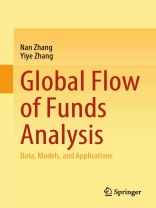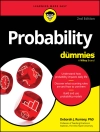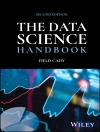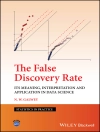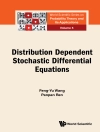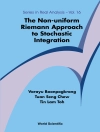This book is the first to focus on the global flow of funds (GFF), providing an introduction to its fundamental concepts and establishing a theoretical framework for analysis. It connects the flow of funds within domestic economies to that of the rest of the world, offering a comprehensive analysis of GFF dynamics. This study enhances GFF statistics, enabling the assessment of global financial stability from both national and cross-border sectoral perspectives. The GFF data provide valuable insights into analyzing interconnectivity across borders and an understanding of global financial interdependencies. By examining the data sources and reconstructing the statistical framework to establish the GFF statistical matrix, this book conducts a case study to evaluate financial risks and influences in G20 countries. Subsequently, it connects the GFF matrix with sectoral account data and the flow of funds to establish the sectoral from-whom-to-whom financial stock matrix (SFSM). The SFSM aims to establish a new framework for conducting multi-country, multi-sector analysis within the G20, with a special emphasis on examining the national and cross-border exposures of sectors in China, Japan, and the USA. This involves constructing country-specific financial networks and connecting them based on cross-border exposures. The systematic analysis results effectively showcase the financial interconnections among G20 countries within the GFF and shed light on the attributes of external shocks and internal influences. The focus is particularly on the changes in risk exposure between China and the USA concerning their external assets and liabilities and the implications of economic decoupling of these dynamics.
表中的内容
Measuring Global Flow of Funds: Data Sources, Statistical Framework, and Approaches.- Global Flow of Funds as a Network: The Case Study of the G20.- Structural Changes in China-US External Flow of Funds: Estimates Based on VEC Model.- A Network Analysis of Sectoral FFSM: Identifying Interlinkages in China, Japan, and the U.S..- Strategic Challenges of Decoupling for China and the United States: focus on the Global Flow of Funds.
关于作者
Professor Nan Zhang is Professor of Statistics at the Faculty of Economic Sciences, Hiroshima Shudo University, Japan. He obtained his Ph.D. in Economics from Ritsumeikan University and has been instructing courses in Statistics, Economic Statistics, and Financial Econometrics at Hiroshima Shudo University since 1995. His research is centered on Economic Statistics, Monetary and Financial Statistics, Financial Econometrics, and Global Flow of Funds Statistics and Analysis.
He has conducted extensive and in-depth research on financial statistics, Flow of Fund Analysis, and Global Flow of Funds Statistics and Analysis, resulting in the publication of numerous influential papers and books. Additionally, he was served as an Advisor and Technical Assistance Expert in the Statistics Department of the IMF from 2008 to 2015.
He was served as Special Researcher at the Research Center for Finance and Securities at Peking University (1997–2005).
Dr. Yiye Zhangis Associate Professor at Weill Cornell Medicine of Cornell University and Graduate Faculty in Cornell Systems Engineering. She earned her Ph.D. in Information Systems Management from Carnegie-Mellon University and a Master’s in Biostatistics from Columbia University. Her research extensively delves into information systems, particularly developing methodology and software to analyze large datasets.
Her work predominantly revolves around the effective utilization of electronic health records (EHRs) and clinical decision support systems (CDSS), emphasizing their role in enhancing public health. Her expertise in analyzing vast and complex datasets has been instrumental in advancing data science for generating insights from heterogenous populations. Her work has been funded by federal agencies in the USA, including the National Institute of Health, Agency for Healthcare Quality and Research, and US Department of Health and Human Services.
She was named the Walsh Mc Dermott Scholar in Public Health from 2016 to 2019.
